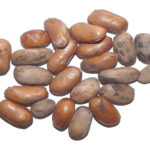NIGERIA Centre for Disease Control (NCDC) has confirmed meningitis (CSM) cases in Zamfara and Jigawa States and also suspected cases of the disease in eight others states.
The suspected cases of CMS are Katsina, Yobe, Ebonyi, Bauchi, Sokoto, Kano, Bayelsa and Ondo.
NCDC’s director general, Dr Chikwe Ihekweazu, in a public health advisory on cerebrospinal meningitis, stated the incidence of the disease started in November.
He said that a national CSM Technical Working Group (TWG) had issued letters of alert to states to ensure their adequate preparedness for this year’s meningitis season.
According to Ihekweazu, high temperatures and low humidity during the dry season increase the likelihood of transmission of organisms that cause Cerebrospinal meningitis in Nigeria.
He stated, “Cerebrospinal meningitis is a very serious infection that can lead to death if left untreated.
“CSM remains a major public health challenge, affecting countries in the African meningitis belt, including 25 States and the Federal Capital Territory (FCT) in Nigeria.”
NCDC’s DG listed the signs and symptoms of the disease to include sudden high fever, severe headache, stiff neck, sensitivity to light, difficulty concentrating, and convulsions.
He said that the major risk factors for infection include overcrowding and poor ventilation and that during outbreaks, vaccination campaigns can be used to prevent the spread of the disease.
The disease, which is contagious and can be transmitted through close contact such as coughing or sneezing, he said, is more common among persons less than 15 years and deaths are higher among untreated cases.
To prevent the spread of CSM, NCDC issued public health advisory note urged members of the public to avoid overcrowding and ensure adequate ventilation in the home and cover their nose and mouth with a disposable tissue or by blowing into the elbow when sneezing or coughing.
Others include frequent washing of hands, especially after coughing or sneezing and a visit to a health facility in case of a sudden high fever or neck stiffness for diagnosis and treatment. Early presentation to a health facility and treatment increases chances of survival.
Also, all health workers are advised to practice universal care precautions at all times while handling patients or providing care to an ill relative.






